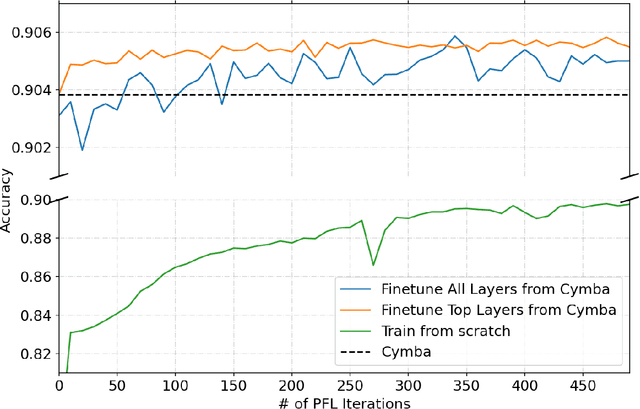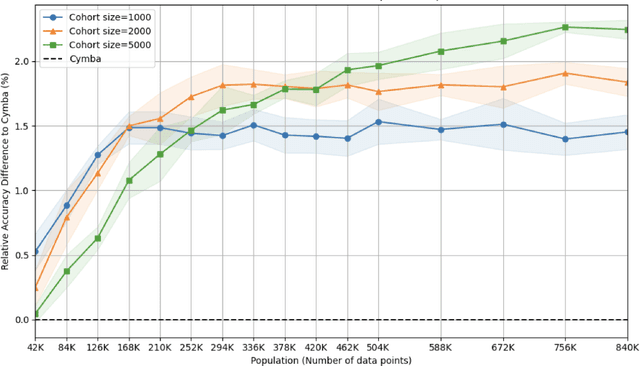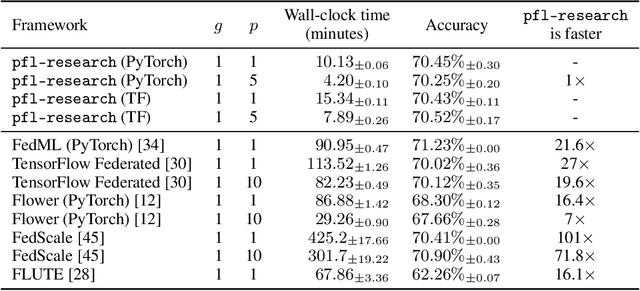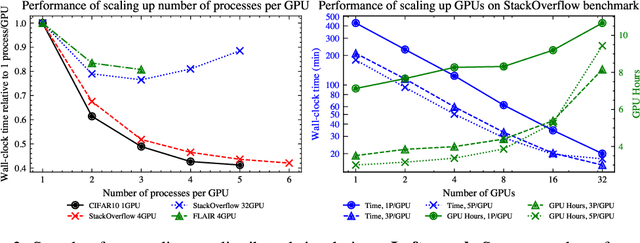Natarajan Krishnaswami
Private Federated Learning In Real World Application -- A Case Study
Feb 10, 2025



Abstract:This paper presents an implementation of machine learning model training using private federated learning (PFL) on edge devices. We introduce a novel framework that uses PFL to address the challenge of training a model using users' private data. The framework ensures that user data remain on individual devices, with only essential model updates transmitted to a central server for aggregation with privacy guarantees. We detail the architecture of our app selection model, which incorporates a neural network with attention mechanisms and ambiguity handling through uncertainty management. Experiments conducted through off-line simulations and on device training demonstrate the feasibility of our approach in real-world scenarios. Our results show the potential of PFL to improve the accuracy of an app selection model by adapting to changes in user behavior over time, while adhering to privacy standards. The insights gained from this study are important for industries looking to implement PFL, offering a robust strategy for training a predictive model directly on edge devices while ensuring user data privacy.
pfl-research: simulation framework for accelerating research in Private Federated Learning
Apr 09, 2024



Abstract:Federated learning (FL) is an emerging machine learning (ML) training paradigm where clients own their data and collaborate to train a global model, without revealing any data to the server and other participants. Researchers commonly perform experiments in a simulation environment to quickly iterate on ideas. However, existing open-source tools do not offer the efficiency required to simulate FL on larger and more realistic FL datasets. We introduce pfl-research, a fast, modular, and easy-to-use Python framework for simulating FL. It supports TensorFlow, PyTorch, and non-neural network models, and is tightly integrated with state-of-the-art privacy algorithms. We study the speed of open-source FL frameworks and show that pfl-research is 7-72$\times$ faster than alternative open-source frameworks on common cross-device setups. Such speedup will significantly boost the productivity of the FL research community and enable testing hypotheses on realistic FL datasets that were previously too resource intensive. We release a suite of benchmarks that evaluates an algorithm's overall performance on a diverse set of realistic scenarios. The code is available on GitHub at https://github.com/apple/pfl-research.
 Add to Chrome
Add to Chrome Add to Firefox
Add to Firefox Add to Edge
Add to Edge